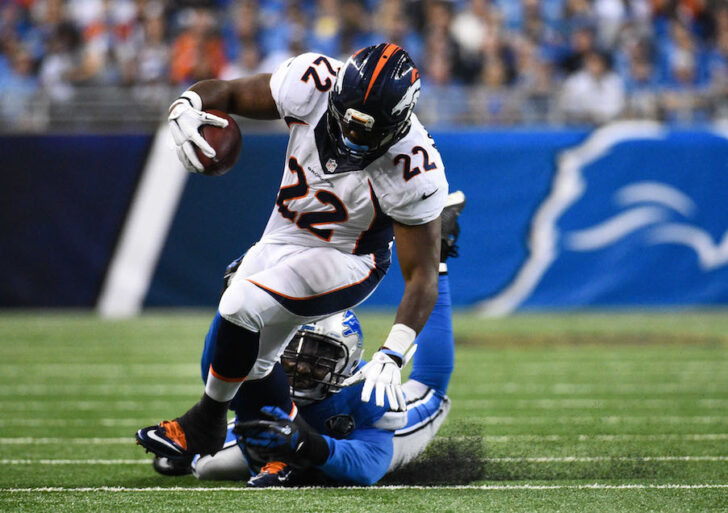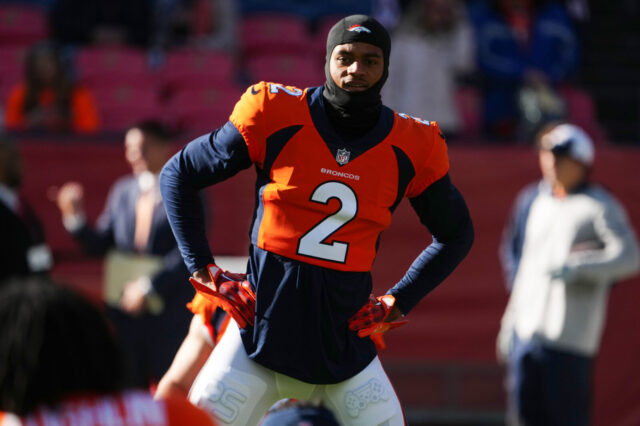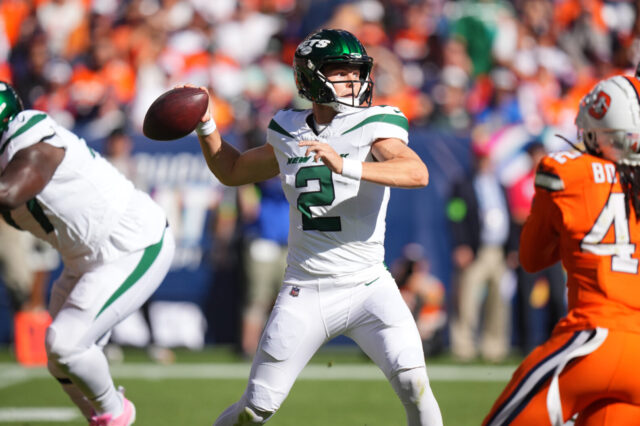Panic has fully set in across Broncos Country. The 5-0 Denver Broncos might as well be 0-5, because the sky is falling.
It’s been Peyton Manning that has drawn the ire of fans for Denver’s terrible start to the season. And everyone is asking the same question, what is wrong with No. 18?
Manning’s numbers through five games have raised eyebrows, but his isn’t even close to the most troubling offensive stat line. C.J. Anderson has 54 carries for 139 yards and zero touchdowns. He’s averaging 2.6 yards per carry and has been a complete nonfactor since the season kicked off.
What is wrong with Anderson? That’s the mystery. (Or is it?) Anderson has gone from Denver’s training camp darling (an undrafted running back that looked loaded with talent), to savior in Oakland and the Broncos’ best offensive weapon, to being an afterthought. It’s been a quick fall from grace.
It’s starting to appear that Anderson’s numbers last season were an anomaly, not the norm.
Anderson earned the starting job with his amazing catch and run in Oakland. Following that game, he did anything and everything for the Broncos. He ran for 160-plus yards in back-to-back weeks against the Dolphins and Chiefs. He smashed in three touchdowns from five yards and in against the Bills and in the season finale he controlled the entire game, giving most of they offense the afternoon off.
When all was said and done, Anderson accounted for 1,173 all-purpose yards and 10 touchdowns in only eight games of fulltime action. That’s production that has been sorely missed this season. Don’t expect No. 22 to be the guy to deliver numbers like that again.
Anderson is nothing more than a complimentary piece. He’s never going to be a player that can put a team on his back and carry them to victory. Blaming Anderson’s lack of production on Manning or the passing game only proves that’s true.
There are plenty of running backs around the league that are the focal point for defenses. Teams don’t show up to play the Chiefs worried about stopping Alex Smith and his dynamic passing game, but Jamaal Charles is still good for 1,200 yards every season.
Defensive coordinators aren’t quivering in their boots at the thought of stopping Michael Vick at this point in his career, but Le’Veon Bell has still rushed for 100-plus yards the last two games.
Anderson is nowhere near the talent of those two; it’s hard to see why anyone thought he was.
Good running backs continue to produce, despite teams revolving their game plans around stopping them. Good running backs overcome seven and eight man fronts. Anderson hasn’t done either. Good running backs also find other ways to contribute.
Last season, when teams were able to bottle up Anderson, he became a deadly weapon catching the ball out of the backfield. Twice, Anderson was Denver’s leading receiver. This season he has been a nonfactor in the passing game.
The biggest indictment on Anderson might have come from his head coach.
When Gary Kubiak arrived in town he was hesitant to name a starting running back. Most people scoffed at the notion and assumed Kubiak was playing coy. What if he wasn’t? What if Kubiak saw something (or nothing) no one else did? What if Kubiak knew all along that Anderson wasn’t his bell cow back?
Kubiak realized that Montee Ball was nothing more than three yards and a cloud of dust.
One thing is certainly becoming clear: Anderson isn’t the back we saw at the end of last season. In 2014, he was a product of the system. Teams were focused on stopping Manning, Demaryius Thomas, Julius Thomas and Emmanuel Sanders, not an unknown training camp darling that had previously shined only during the preseason. No. 22 found space because others created it for him, not vice versa.



